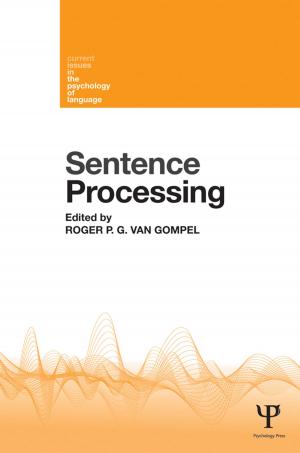Talking Financial Inclusion in Liberalised India
Conversations with Governors of the Reserve Bank of India
Business & Finance, Accounting, Financial, Finance & Investing, Banks & Banking| Author: | ISBN: | 9781351336819 | |
| Publisher: | Taylor and Francis | Publication: | October 4, 2017 |
| Imprint: | Routledge India | Language: | English |
| Author: | |
| ISBN: | 9781351336819 |
| Publisher: | Taylor and Francis |
| Publication: | October 4, 2017 |
| Imprint: | Routledge India |
| Language: | English |
This book presents a set of conversations with five former Governors of Reserve Bank of India (from 1992 onwards) on the topic of financial inclusion. Two key aspects are introduced in the conversations with each Governor: the initiatives that were undertaken during their tenure and their responses to some of the current issues. Further, they examine the reasons and justifications for significant decisions and measures that were undertaken or withheld. The discussion captures the evolution and approach of the central bank in addressing a variety of questions pertaining to financial inclusion.
The volume is an important contribution to the study of India’s continuous but not entirely successful efforts in increasing the reach of its formal financial sector. It reconstructs how the policy approach to inclusive banking has progressed and resisted commercial and market imperatives to safeguard the deprived and dispossessed sections of society.
With its wide-ranging blend of conversations, documentation, research and commentary coupled with its engaging style, the book will interest students and researchers in the areas of development, banking, macroeconomics, public administration and governance, as well as academics, analysts, policymakers, think tanks, journalists, media and those concerned with the Indian economic policy.
This book presents a set of conversations with five former Governors of Reserve Bank of India (from 1992 onwards) on the topic of financial inclusion. Two key aspects are introduced in the conversations with each Governor: the initiatives that were undertaken during their tenure and their responses to some of the current issues. Further, they examine the reasons and justifications for significant decisions and measures that were undertaken or withheld. The discussion captures the evolution and approach of the central bank in addressing a variety of questions pertaining to financial inclusion.
The volume is an important contribution to the study of India’s continuous but not entirely successful efforts in increasing the reach of its formal financial sector. It reconstructs how the policy approach to inclusive banking has progressed and resisted commercial and market imperatives to safeguard the deprived and dispossessed sections of society.
With its wide-ranging blend of conversations, documentation, research and commentary coupled with its engaging style, the book will interest students and researchers in the areas of development, banking, macroeconomics, public administration and governance, as well as academics, analysts, policymakers, think tanks, journalists, media and those concerned with the Indian economic policy.















